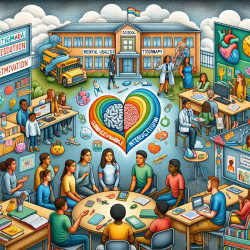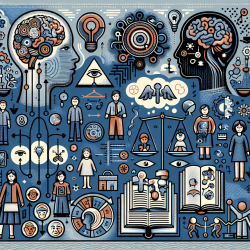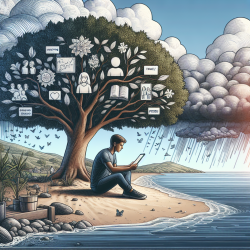In the ever-evolving field of online therapy, practitioners are continually seeking innovative ways to enhance their skills and better serve their clients. One area of research that offers profound insights is the study of environmental water management and its social relations. A recent research article titled "Understanding rivers and their social relations: A critical step to advance environmental water management" sheds light on how integrating the social dimensions of river management can lead to more holistic and effective practices. This blog explores how the findings from this research can be applied to improve skills in online therapy.
Understanding the Social Relations of Rivers
The research emphasizes that rivers are not just natural entities but are deeply intertwined with social, cultural, and economic aspects of human life. This perspective is crucial for environmental water management, which traditionally focuses on biophysical aspects. By acknowledging the social relations of rivers, we can develop more comprehensive management strategies that benefit both ecosystems and human communities.
Implementing Research Outcomes in Online Therapy
Online therapy practitioners can draw parallels between the holistic approach to river management and their therapeutic practices. Here are some ways to implement the outcomes of the research:
- Holistic Assessment: Just as river management requires understanding the interconnectedness of natural and social elements, online therapy should consider the client's entire ecosystem, including their social, cultural, and economic contexts.
- Collaborative Efforts: The research highlights the importance of multidisciplinary and collaborative efforts. Online therapists can benefit from collaborating with other professionals, such as educators, social workers, and healthcare providers, to offer comprehensive support to their clients.
- Client-Centered Approach: Recognizing the diverse needs and values of different communities is essential in river management. Similarly, online therapy should be tailored to meet the unique needs and preferences of each client, respecting their cultural and social backgrounds.
Encouraging Further Research
The research also calls for further exploration of the social dimensions of environmental water management. Online therapy practitioners can contribute to this growing body of knowledge by conducting their own research on the social aspects of therapy and sharing their findings with the broader community.
Conclusion
Integrating the outcomes of the research on environmental water management and social relations into online therapy can lead to more effective and holistic practices. By considering the broader context of their clients' lives and collaborating with other professionals, online therapists can enhance their skills and better serve their clients.
To read the original research paper, please follow this link: Understanding rivers and their social relations: A critical step to advance environmental water management.










